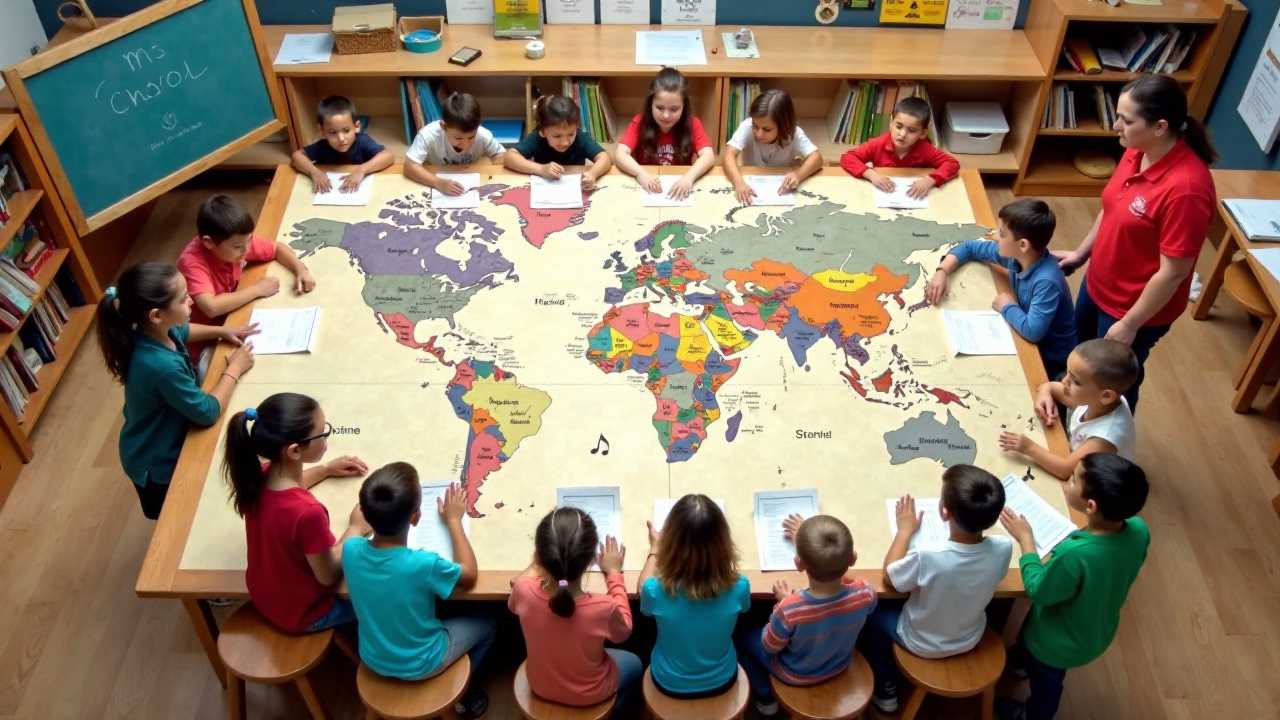
Understanding Middle School Music Education Resources
Middle school music education resources play a pivotal role in shaping the musical journey of young learners. These resources encompass a wide range of materials, tools, and strategies designed to foster a love for music while developing essential skills. By integrating curriculum development, teaching strategies, and student engagement, educators can create a dynamic learning environment that encourages creative expression and interdisciplinary learning.
Curriculum Development: Building a Strong Foundation
Effective curriculum development is the backbone of any successful middle school music program. A well-structured curriculum not only outlines the objectives and goals but also provides a roadmap for educators to follow. It should incorporate various musical genres, historical contexts, and cultural perspectives, allowing students to appreciate the richness of music.
In developing the curriculum, we must consider the diverse needs of students. Tailoring lessons to accommodate different learning styles ensures that every student can engage with the material. Incorporating technology, such as music software and online resources, can enhance the curriculum, making it more interactive and relevant to today's learners.
Teaching Strategies: Engaging Students in the Learning Process
Implementing effective teaching strategies is crucial for fostering student engagement in music education. Active learning techniques, such as group projects, peer teaching, and hands-on activities, encourage students to take ownership of their learning. By involving students in the decision-making process regarding their musical experiences, we empower them to explore their interests and talents.
Incorporating performance assessment into teaching strategies allows educators to evaluate student progress and provide constructive feedback. Performance assessments can take various forms, including solo performances, group ensembles, and even digital recordings. This approach not only helps students develop their performance skills but also builds their confidence as they showcase their abilities.
Enhancing Student Engagement Through Creative Expression
Creative expression is a vital component of middle school music education. Encouraging students to compose their own music, write lyrics, or create arrangements fosters a sense of ownership and pride in their work. Providing opportunities for improvisation and experimentation allows students to explore their musical ideas freely, leading to greater engagement and enthusiasm for learning.
Incorporating interdisciplinary learning into music education can further enhance student engagement. By connecting music to other subjects, such as history, science, or literature, we create a more holistic learning experience. For example, studying the historical context of a musical piece can deepen students' understanding and appreciation of the music while reinforcing their knowledge in other areas.
Performance Assessment: Measuring Growth and Development
Performance assessment serves as a critical tool for measuring student growth and development in music education. By evaluating students' performances, educators can identify strengths and areas for improvement. This feedback is invaluable for guiding future instruction and helping students set personal goals.
In addition to traditional performance assessments, incorporating self-assessment and peer assessment can provide students with a more comprehensive understanding of their progress. Encouraging students to reflect on their performances fosters a growth mindset, allowing them to view challenges as opportunities for improvement.
Creative Expression: The Heart of Music Education
At the core of middle school music education is the concept of creative expression. Music is a powerful medium for self-expression, allowing students to convey their thoughts, emotions, and experiences. Providing a safe and supportive environment for students to express themselves creatively is essential for their artistic development.
Encouraging collaboration among students can further enhance creative expression. Group projects, ensemble performances, and collaborative compositions allow students to share ideas and learn from one another. This collaborative spirit not only enriches the learning experience but also fosters a sense of community within the classroom.
Interdisciplinary Learning: Connecting Music to the Broader Curriculum
Interdisciplinary learning is an effective approach to enrich middle school music education. By integrating music with other subjects, we can create meaningful connections that enhance students' understanding and appreciation of both music and the broader curriculum. For instance, exploring the mathematical concepts of rhythm and timing can deepen students' comprehension of both music and mathematics.
Furthermore, incorporating literature into music education can enhance students' understanding of song lyrics and themes. Analyzing the narrative elements of a song can lead to discussions about character development, setting, and plot, reinforcing students' literacy skills while deepening their musical understanding.
The Future of Middle School Music Education
As we look to the future of middle school music education, it is clear that engaging students through creative curriculum development, innovative teaching strategies, and effective performance assessment is paramount. By fostering student engagement and encouraging creative expression, we can cultivate a generation of musicians who are not only skilled but also passionate about their craft. Embracing interdisciplinary learning will further enrich the educational experience, ensuring that music education remains a vital and transformative part of the middle school curriculum.
 Careers in EducationElementary EducationHigh School EducationEducational TechnologyTeaching StrategiesSpecial EducationPrivacy PolicyTerms And Conditions
Careers in EducationElementary EducationHigh School EducationEducational TechnologyTeaching StrategiesSpecial EducationPrivacy PolicyTerms And Conditions
